Pride & Immigrant Heritage Month: Shining Light on Joy and Resilience
June 25, 2025
Every June, as we celebrate both Pride and Immigrant Heritage Month, we get a reminder of how our identities connect us to food and vice versa.
For Coloradans of all identities, food is not just nourishment; it’s a celebration of culture, an expression of joy, and a tool for resistance and cultural preservation. For immigrant and LGBTQIA2+ communities, food has long served as both a lifeline and a love language—a way to hold on to heritage, resist marginalization, and cultivate community. There is no better place to witness that intersection than at the table.
This month, we’re honoring that legacy by spotlighting the contributions of LGBTQIA2+ and immigrant communities to our food system and beyond while also acknowledging the oppressive systems, structures, and policies that work against these groups.
The Joy:
Colorado without immigrants is food with no flavor. From tacos to pho, curry, to Xia Long Bao soup dumplings, immigrant contributions have helped fill and flavor our plates with some of our favorite dishes.
Long before food reaches our kitchens, immigrants form the backbone of our local food system, making up more than 70% of agricultural workers.
The influence of queer and immigrant communities extends beyond cultivating and creating of food into where we consume it as well. Queer-owned and immigrant-led restaurants often double as community hubs: places to gather, feel seen, and feed others with dignity. All across the U.S., these leaders continue to push for change through pioneering ideas like “gastro-advocacy”—pairing globally inspired dishes with resources on civic engagement.
This is the joy we celebrate: culture preserved through recipes, chosen families gathering around meals, and community kitchens cooking up pride.
The Barriers:
Food insecurity remains a prevalent and deeply ingrained issue that disproportionately impacts communities that continue to face historically rooted oppression. Non-citizens report facing food insecurity at nearly double the rate of U.S. citizens.
That is to say, despite making up such a large part of our food system, many immigrant food workers cannot access the very food they help produce. Fear of deportation, exclusion from federal programs, language barriers, and misinformation all contribute to under-enrollment in food assistance programs like SNAP, formally known as the Supplemental Nutrition Assistance Program. Many immigrant families are eligible for SNAP but don’t apply; this is in part due to fears tied to immigration status rules and ongoing anti-immigrant rhetoric.
At the same time, many members of the queer community face exacerbated barriers to food access as well. Non-binary people face food insecurity at a reported rate that’s double of their cis-male counterparts. Nationally, trans people often face discrimination in housing and employment—two major predictors of food insecurity. This discrimination is something that impacts the queer community as a whole.
For LGBTQIA2+ immigrants, the risks compound. Many are also navigating trauma, asylum processes, or familial rejection, further limiting access to stable nutrition.
Building a Better Food System for the Future:
Still, LGBTQIA2+ and immigrant communities continue to lead the way in building more just, inclusive, and sustainable food systems.
From community fridges in immigrant neighborhoods to queer-owned farms and cooperatives, grassroots innovation is alive and well. Organizations like FrontLine Farming are providing food to people of all immigration statuses, gender and sexuality identities, and income levels.
The cultural wealth that immigrant and queer communities bring—through language, farming knowledge, recipes, and traditions of food, resistance, and innovation—strengthens the resilience of our food system. These contributions deserve not only celebration but protection.
Food connects us. It reminds us who we are and where we’ve been. But not everyone has equal access to that joy.
This Pride & Immigrant Heritage Month, let’s honor the full picture: the celebrations, the recipes, the labor, the pain, and the perseverance. Let’s nourish each other not just with food—but with care, dignity, justice, and advocacy.
Your Role in This:
A couple ways to spread the love this Immigrant Heritage & Pride Month:
Uplift immigrants and queer people in your life—see them, listen to them, and share what they have to say, on and offline.
Support them with your money.
Visit immigrant- or queer-owned restaurants, businesses, farms, and CSAs in Colorado
Get produce from Offbeat Farm, the Gayest Little Farm in Boulder.
While you’re in the Boulder area, swing by Wild Well Spring farm too.
Grab a coffee or food in Denver at Quince Coffee or Convivo Cafe.
Check out this trans-owned food hub, Common Harvest.
Find a Colorado LGBTQIA2+ owned businesses near you.
Donate, volunteer, and get involved! Here are some organizations across Colorado that advocate for these communities:
Contact your elected officials.
Let them know that the well-being of your fellow community members is a top priority/voting concern for you.
Find your state legislators.
Go national or more local with this tool to discover who your elected officials are in Colorado or on Capitol Hill.Continue to learn
Diversify your media consumption – what voices and faces do you hear from on your feed?
Inspire your inner chef with abir.sag on Tik Tok.
Check out this queer Cantonese chef on Instagram.
Follow this queer Boulder-based farm on Facebook.
Get involved with this immigrant-founded food rescue on LinkedIn.
Discover immigrant and LGBTQIA2+ voices in and out of the food sphere!
Check out any of these resources for places to start:

